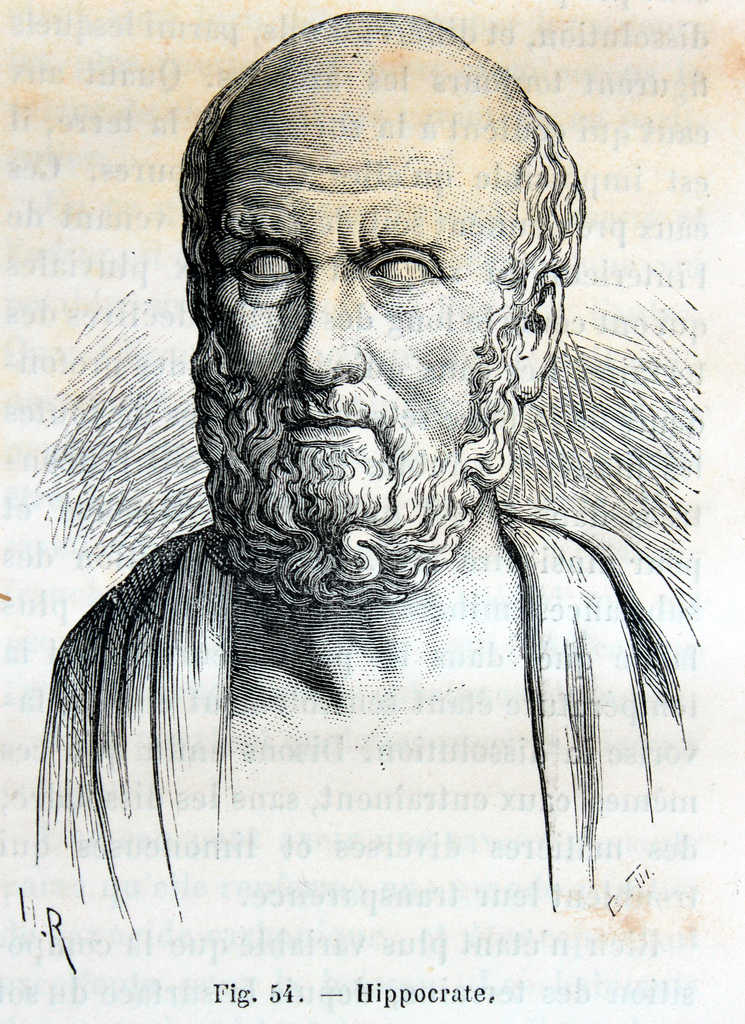



Hippocrates often appears as the father of the idea that the brain is the organ of the mind. Yet, as Stanley Finger (2000, chap. 3) notes in his history of neuroscience “pioneers,” this tends to be done by taking out of context a few lines from Hippocratic treatises. In On the Sacred Disease, written around 400 BCE, we certainly find the oft-quoted sentence, “Men ought to know that from nothing else but the brain come joys, delights, laughter and sports, and sorrows, griefs, despondency, and lamentations” and the claim that “by the same organ we become mad and delirious.” Nevertheless, Hippocrates goes on to say that we endure these things when the brain “is more hot, more cold, more moist, or more dry than natural.” And he further explains that brain disorders arise from phlegm and bile (and therefore reflect the classic temperaments), such that “those who are mad from phlegm are quiet” and “those from bile are vociferous.”
In this passage, Vidal and Ortega point to the inconsistency of claiming Hippocrates the first to locate the mind inside the brain, since his work was rooted in the theory of the four bodily humors, or the four temperaments.

19th century illustration of Hippocrates

Inspired by the homonymous book by Fernando Vidal and Francisco Ortega, this timespace presents the authors' genealogy of the cerebral subject and the influence of the neurological discourse in human sciences, mental health and culture.